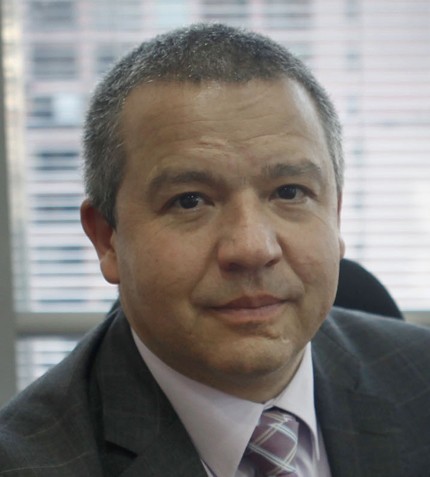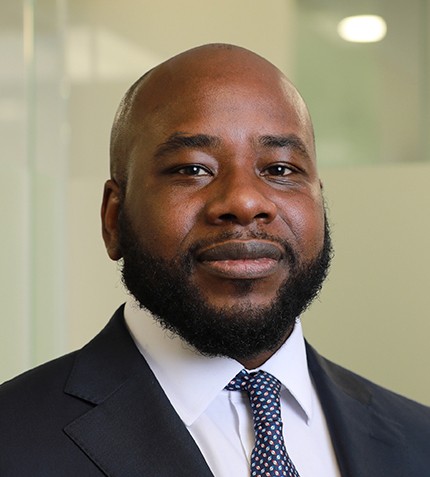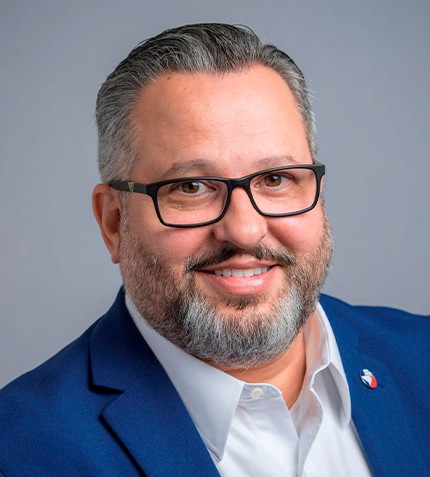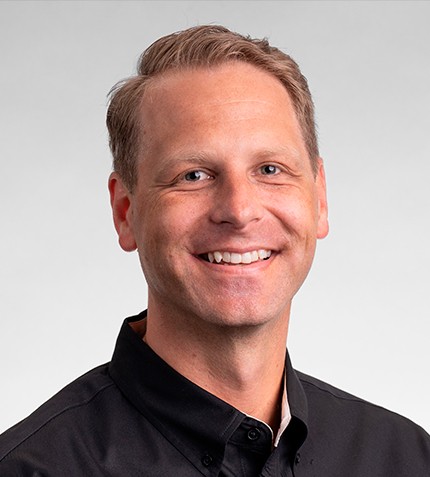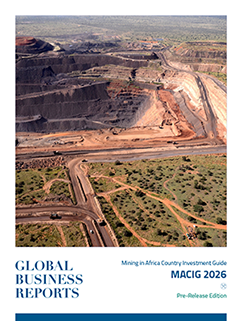
"The South American agricultural industry has always been the back yard of North America, from bananas to soy to sugar cane, and there is still plenty of room to grow in all aspects, especially those related to logistics!"
Peter Staartjes
CEO, ANDINO / ANDIKEM
How have the last 12 months been for Andino / Andikem?
Our revenues forecasted for 2021 will be double those of 2019 and most of the increase is volume and services driven. The surge in commodity prices we’ve seen this year is a combination of product scarcity coupled with logistical constraints highlighted by two major incidents: the arctic freeze in the US (which paralyzed a large portion of the US Gulf industry) and the blockage of the Suez Canal (which along with product shortage has caused container rates from Asia to Latin America to rise from US$3,000 to over US$15,000 and even US$20,000 in some cases).
What changes have you made to deal with the logistics disruptions that have persisted in 2021?
Our Andikem business model consists of four pillars: Andino Chemical International (procurement), Andishipping (maritime freight), Anditerminals (storage) and a last mile delivery component for our end users in each Andikem country. As such, we are a logistics company first and foremost. In order to deal with disruptions we have added more capabilities to support our Andikem operations: Andishipping is acquiring a second ship (M/T Andino Nu) which will support the already employed M/T Andino Alpha (both are ~14,000-deadweight stainless steel tankers with multiple segregations), Anditerminals is expanding the storage capacity at its Tuxpan Marine Terminal in Mexico and Andino Chemical is expanding its procurement department to better serve its customers. We noticed early on this year that many suppliers wanted to switch to bulk because they could no longer satisfy their customers with flexi-tanks and ISO-tainers the way they were in the past. This will lead to a modality shift for which we will be well prepared: suppliers and end users flexible enough to switch to bulk from containers via the hub and spoke model will gain market share over those who cannot. Experts are forecasting that these logistics disruptions could last longer than two years, so there will be no shortage of problems for Andikem to solve for its users.
Have a problem? Andikem it!
How do you view the ongoing issues between Pemex and the private sector in Mexico, and the wider issue of feedstock availability in Latin America?
In the case of Pemex the Mexican President is trying to give priority to the State-owned company by reversing some of the agreements that were made under USMCA, which will affect mainly the imports of gasoline, diesel, jet fuel and possibly LPG. Andino is currently not active in these market segments even though our terminal in Tuxpan could have the capability of handling direct discharge of some of those products. For the time being we have decided to wait and see how things will develop before we foray into that world. On the petrochemical
side, the Mexican market is quite healthy. The East Coast terminals coast are full and, consequently, we will expand our Tuxpan terminal because we do not see enough petrochemical storage space coming online anytime soon.
From a regional perspective, Latin America will continue to depend on the US Gulf for feedstock, given the enormous quantities of shale gas available. It seems inevitable, however, that we are entering a new era in which markets will transition to “greener” energy plays to help combat climate change. Andino is already looking seriously at this transition, trying to anticipate where our logistics services and assets could enhance the ability for suppliers and their customers to “go green”.
Has Andikem’s work in Peru’s mining industry been impacted by political volatility in the country?
For chemicals such as sulfuric acid, Andikem’s volumes have remained steady, but prices have gone sky high! Regarding politics, my experience in Latin America is “the dog that barks loudest doesn’t always bite”. We saw this with Mr. Ollanta Humala when he took office in 2011 and subsequently turned out to be a centrist. Peru has more than US$30 billion of mining projects in its pipeline and a compromise will be necessary between the copper producers, investors and the local communities. I am mildly bullish that all players will find a middle ground and things will continue to move forward as usual.
To what extent has the adoption of digitalization accelerated during the pandemic?
For communications, tremendously! Even though customers have adjusted to life without frequent visits from their suppliers’ sales reps, they still need someone to mentor and provide them with market information outside of their purview. Besides getting our fully vaccinated commercial team back in the air, we’ve spent significant resources on our online platforms explaining how our portfolio of chemicals may be used, substituted or processed differently in order to alleviate supply shortages or delivery delays. When it comes to ensuring the safe handling of products, our mAshc3 program provides for audits, permitting and product handling advice all via remote methods when necessary.
Operational digitalization remains somewhat cumbersome because many of the countries in which we work still require physical signatures. One of the biggest challenges is choosing the right kind of ERP system, which must be customized for each country given each has its own protocols for invoicing, payment and tax collection. At Andikem we are constantly focused on how to get a product from the US, Asia or Europe to Latin America as seamlessly as possible without the physical need for someone in between just pushing papers.
When it comes to Andino / Andikem’s growth strategy in Latin America, do you prefer the organic route or M&A and which markets do you see as having strong potential?
I have always been a big believer in an organic-heavy approach to growth. Acquisition-based growth strategies have many pitfalls: “hidden skeletons” may appear post transaction (infrastructure surprises, environmental issues, labor liabilities). Moreover, several acquisitions made over a short period often lead to company culture issues, “silo” mentalities and accounting-driven decision making, all of which are to the detriment of customers. So, I’d say two-thirds of Andino’s growth strategy should be organic while we assess carefully selected opportunities for M&A growth, particularly in Colombia, Ecuador and Peru. Oleochemicals, vegetable oils and their derivatives are highly sought after in countries like Mexico, and the excess capacity in the northern Andean belt has the potential to supply the demand. The South American agricultural industry has always been the back yard of North America, from bananas to soy to sugar cane, and there is still plenty of room to grow in all aspects, especially those related to logistics!




